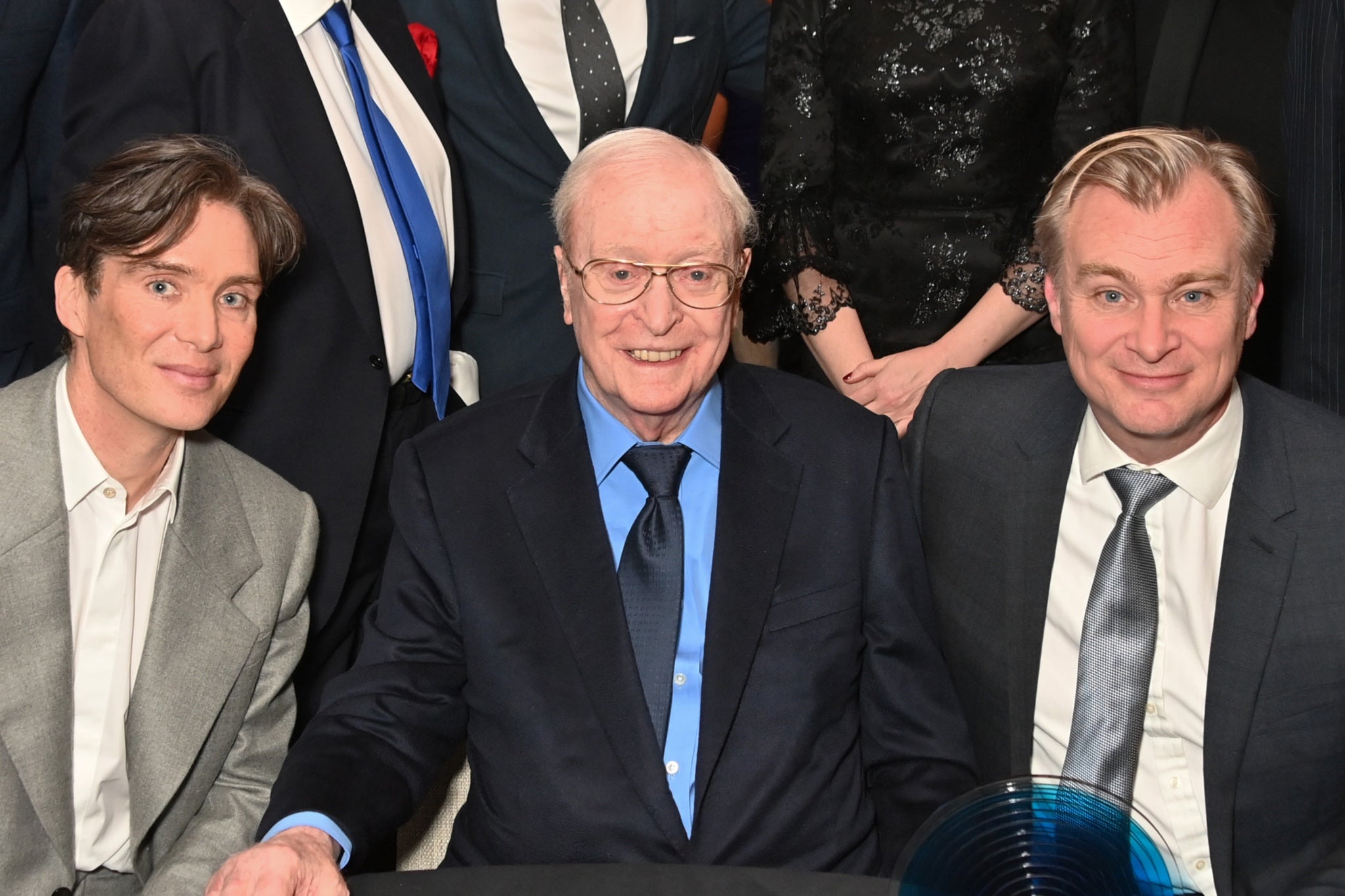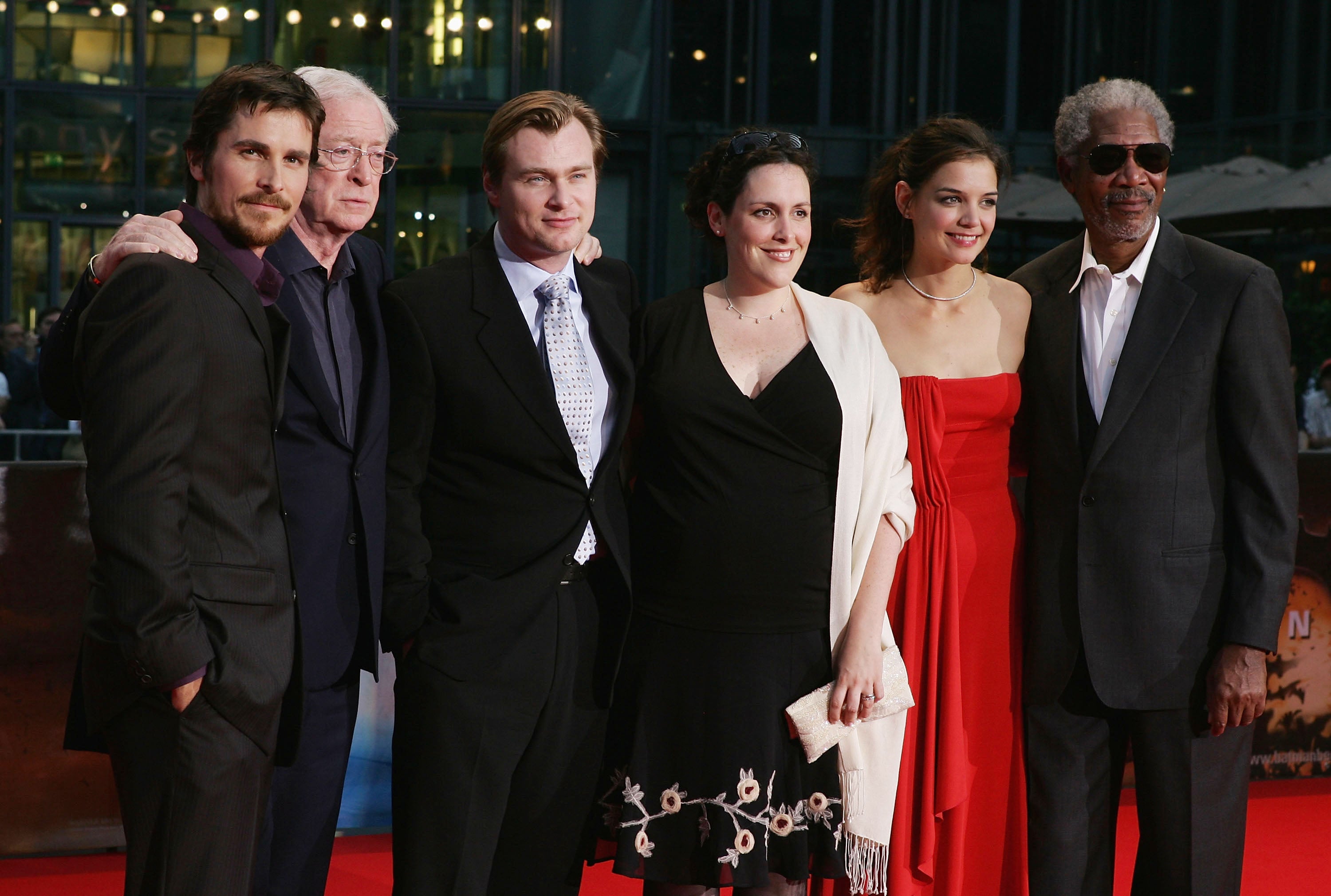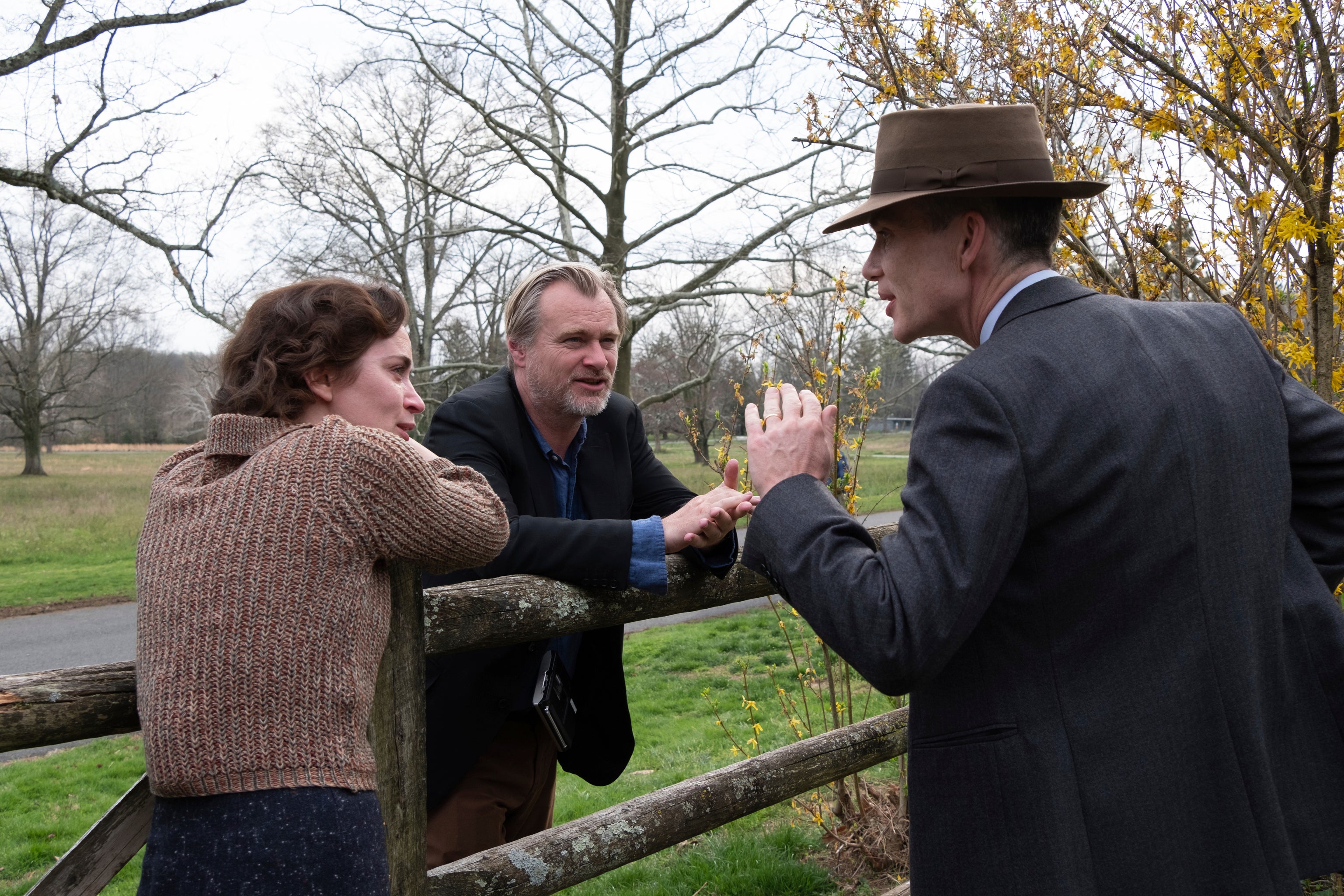Christopher Nolan explains why Michael Caine wasn’t in Oppenheimer
Veteran British actor has appeared in eight of the director’s films, including his Dark Knight trilogy and ‘Inception’ with Cillian Murphy

Christopher Nolan has explained why his longtime collaborator Sir Michael Caine did not appear in his Oscar-nominated historical epic, Oppenheimer.
The film, about the nuclear arms race, swept the Academy Award nominations this year, earning 13 nods in total.
Irish actor Cillian Murphy, who played the “father of the atomic bomb“, J Robert Oppenheimer, is up for Best Actor, while Nolan is in the running for Best Director.
However, Nolan fans might have been surprised by Caine’s absence from the film. The veteran British actor has appeared in eight of the director’s films to date, including his Dark Knight franchise starring Christian Bale as Batman.
He also starred in Inception alongside Murphy, another of Nolan’s frequent collaborators.
Nolan addressed this while accepting the BFI Fellowship last night (Wednesday 14 February) at the the annual British Film Institute chairman’s dinner.

After being presented with the award by Murphy, Nolan paid tribute to his wife and producer Emma Thomas, as well as reflecting on his relationship with Caine, who also attended the ceremony, and why he wasn’t cast in Oppenheimer.
Caine, 90, apparently told Nolan: ”Okay enough is enough.”
“I had to go off on my own,” the director explained. “So, okay, I haven’t got Michael Caine, I’d better get Matt Damon, Robert Downey Jr, Kenneth Branagh, Emily Blunt, Florence Pugh, Josh Hartnett, Cillian Murphy, Tom Conti, and hoped that all those greats would add up to one Michael Caine.”
Nolan continued: “So many people have helped me, so many people have been there for me, in so many different ways.
“I’m very moved to receive this, very moved by the presentation. This means the world to me.”

The fellowship recognised Nolan’s “extraordinary achievements and enormous contribution to cinema as one of the world’s most innovative and influential film directors”, the BFI said.

Watch Apple TV+ free for 7 day
New subscribers only. £9.99/mo. after free trial. Plan auto-renews until cancelled.
ADVERTISEMENT. If you sign up to this service we will earn commission. This revenue helps to fund journalism across The Independent.

Watch Apple TV+ free for 7 day
New subscribers only. £9.99/mo. after free trial. Plan auto-renews until cancelled.
ADVERTISEMENT. If you sign up to this service we will earn commission. This revenue helps to fund journalism across The Independent.
Presenting the award, Murphy hailed Nolan’s films as “unique, boundary-pushing, singular, provocative, ambitious and unforgettable”, adding: “He is a one in a million, a true legend, one of the greatest directors in the world.”
“It is a privilege of mine to know him, and to have worked with him so closely over the last 20 years. I have the utmost respect for him as an artist and a human being,” he said.

Also in attendance at the event, held at the Rosewood Hotel in London, were prime minister Rishi Sunak, culture secretary Lucy Frazer, actor Sir Kenneth Branagh, Oppenheimer stars Josh Hartnett and Tom Conti and composer Hans Zimmer.
BFI chairman Tim Richards said: “I’m delighted to be honouring and recognising British film director Christopher Nolan with a BFI Fellowship for his outstanding contribution to cinema.
“He is one of the greatest filmmakers of the 21st century, creating films that captivate audiences all over the world, generate billions at the box office and garner critical acclaim and awards.
“Christopher’s passion as a filmmaker is matched by his commitment to preserving celluloid through his involvement with The Film Foundation and his own support via the Morf Foundation for the BFI’s photochemical work.
“In doing so, current and future audiences will be able to continue to enjoy and learn from our incredibly rich history of cinema for many years to come.”
Join our commenting forum
Join thought-provoking conversations, follow other Independent readers and see their replies
Comments
Bookmark popover
Removed from bookmarks